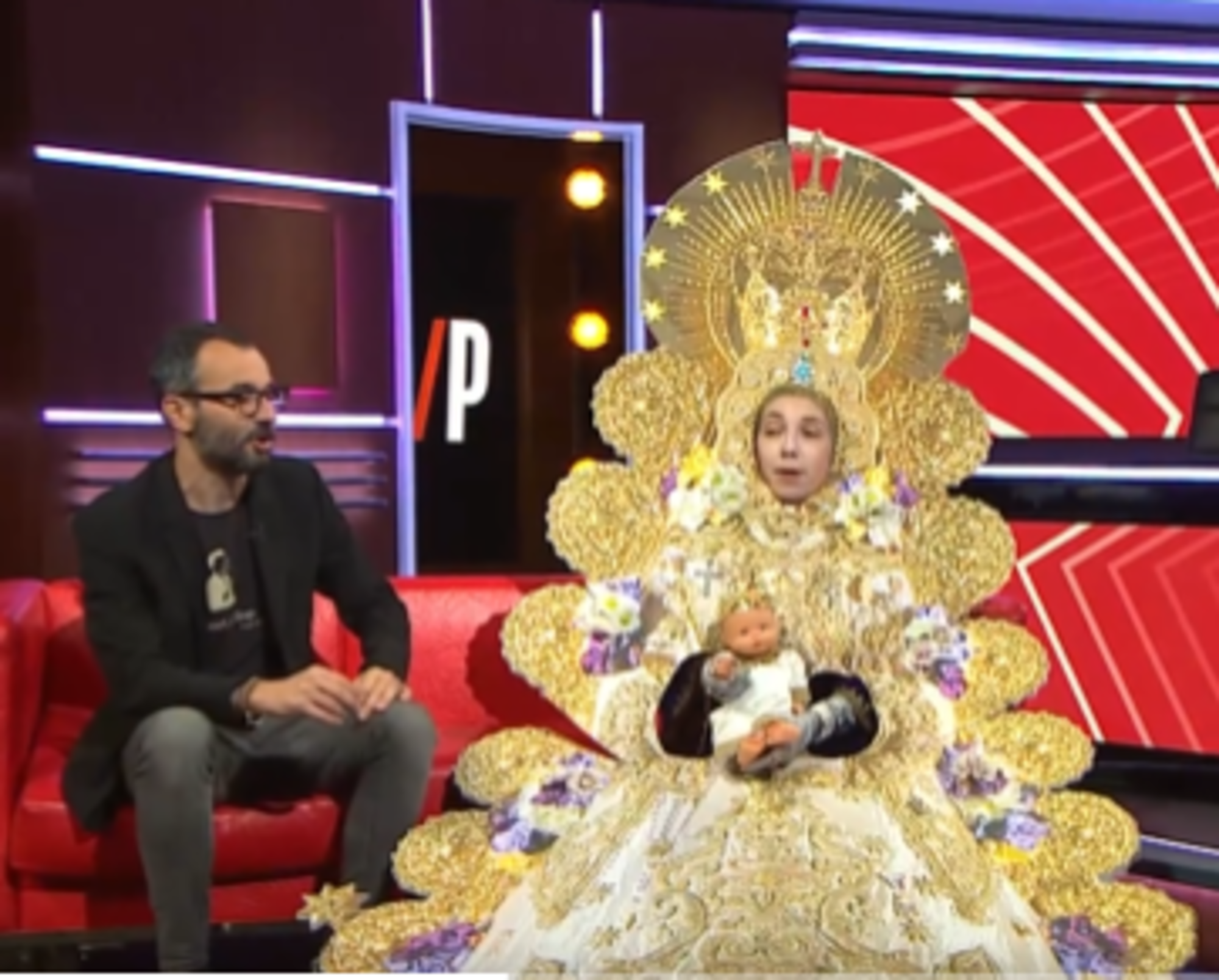It has been a cause célèbre of this Easter season in Spanish media, and now it may have almost come full circle. The Andalusian politician Teresa Rodríguez, of left-wing Adelante Andalucía, was the first to vent her criticism on social media about a Catalan public television gag sending up the Catholic icon, the Virgin of the Rocío, but she now admits that she would not have tweeted if she had foreseen the "wave of Catalanophobia" that it has generated. "I didn't intend it to start a controversy against Catalonia. It makes me angry that my innocent comment is part of that," she said in an interview with radio station RAC1. She also denied that her comment had an electoralist intention. And she has insisted that she did not like the irreverent sketch even though she does not think it is punishable. Rodríguez admitted that she did not predict the repercussion of her criticism and apologized. "I wasn't aware that it would fuel Catalanophobia. I'm sorry if I contributed to it," she added.
Rodríguez believes that even if she had not sent her tweet, the controversy would probably have been generated anyway. And she wanted to make it clear that her criticism of the gag was not against Catalonia. Her intention, as she explained, was to point out that it could hurt many people because Easter in Andalusia "is not a church thing but a cultural thing". This is the tweet that Rodríguez sent which generated many Catalanophobic comments:
Se puede hacer humor de todo. También de la Semana Santa. Pero no con tantísima malaje, ignoracia y andaluzofobia (imita el acento de tu puñetero pare, por ser suave)
— Teresa Rodríguez - Adelante Andalucía ۞ (@TeresaRodr_) April 7, 2023
"El humor, hacia dentro y hacia arriba, si no es opresión"
(La Vasallo) pic.twitter.com/kURIzYzXns
Translation: "You can make humour out of everything. Out of Holy Week, too. But not with so much nastiness, ignorance and Andaluphobia (imitate the accent of your damned father, to put it mildly). 'Humour, inwards and upwards, if not, it is oppression' (Brigitte Vasallo)"- Teresa Rodríguez, spokesperson Adelante Andalucía
The sketch itself, on the TV3 satirical programme Està Passant was centred on an Easter-week exclusive interview with the Virgin of the Rocío, a Roman Catholic symbol of the Virgin Mary, played in the sketch by comic actor Judit Martín, who complains in a broad Andalusian accent about her lack of a decent sex-life while boasting of her young son's talents, among other issues discussed irreverently. And while Teresa Rodríguez didn't re-tweet the sketch, many others did, among them Andalusian president Juanma Moreno.
El humor es una de las señas de identidad de nuestra tierra, pero para tener gracia se hace con respeto y cariño.
— Juanma Moreno (@JuanMa_Moreno) April 8, 2023
Es una falta de respeto a #Andalucía, y a miles de andaluces y sus tradiciones. Espero que para pedir perdón sepan hacerlo mejor.pic.twitter.com/IF4rkO1CN2
"Humour is one of the hallmarks of our land, but to be funny it has to be done with respect and affection. It is a lack of respect for Andalusia, and thousands of Andalusians and their traditions. I hope that they are better at asking for forgiveness."— Juanma Moreno
Juanma Moreno links to nurse's Tik-Tok video
For his part, the president of Andalusia, Juanma Moreno, asked again this Wednesday for "respect" for Andalusia and criticized the TV3 gag. According to Moreno, "Andalusia respects everyone" but "comes out to defend itself when someone mocks us, our customs, accents and the way we feel about things". Catalonia, he said, "is a sister land that we love deeply", and that is why "it pains us to see how a land that has been so cosmopolitan, open and welcoming, today is directed from intolerance and lack of respect for other lands of Spain". According to Moreno, the TV3 gag "is not only a mockery of the Virgin of the Rocío, but also a hostile and even aggressive persecution, for example of an Andalusian nurse for expressing herself freely and criticizing the obligation to speak Catalan without offending anyone." The PP politician was referring to another recent social media storm, centred on a young health worker employed in a Barcelona hospital who made a Tik-Tok video in her work time, expressing her contempt about having to learn Catalan to pass public service exams in Catalonia. Her contract was not renewed.
On Tuesday, the Catalan public channel TV3 defended the gag broadcast on the programme Està Passant about the Virgin of the Rocío and argued that parody is a "symptom of democratic quality". The channel affirmed that "it has always made fun of everything and will continue to do so", TV3 sources have told Europa Press. The Audiovisual Council of Catalonia (CAC) has reported that it is analyzing the gag after receiving four complaints for "religious offence". The Andalusian government has said that it will present a formal complaint to the Federation of Autonomous Radio and Television Organizations or Entities (FORTA) for the gag, while the Tarraconense Episcopal Conference, the Diocese of Urgell and the Spanish Foundation of Christian Lawyers have joined in denouncing the content of the parody.

